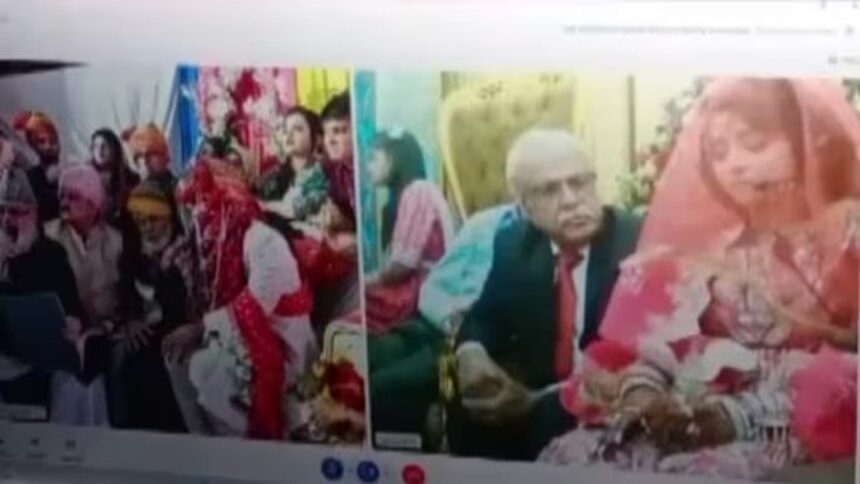In the latest cross-border marriage, a Pakistani woman has married a man from Rajasthan virtually. Ameena, who is from Pakistan, married Rajasthan’s Arbaaz virtually after she failed to obtain an Indian visa. This is the third cross-border marriage in the recent past after Pakistan’s Seema Haider married Sachin in Greater Noida and India’s Anju married Nasrullah in Khyber Pakhtunkhwa.
The ceremony was conducted on Wednesday night, with all the rituals held via video conferencing, India Today reported on Sunday. The Nikah was officiated by Qazis from both India and Pakistan, and family members and relatives from both sides participated in the auspicious event. In Jodhpur, the entire wedding was displayed on LED screens for the groom’s relatives to witness, the report said.
Arbaaz, the younger son of civil contractor Mohammad Afzal, stated that the families would soon apply for a visa for Ameena’s entry into India. He said his relatives are in Pakistan and this was an arranged marriage through relatives. “We were compelled to conduct it online due to the strained relations between the two countries at present. It will take a considerable amount of time to obtain a visa. That’s why we decided to conduct it virtually,” Arbaaz said.
He further explained why he did not go to Pakistan for marriage. He said that if they were to marry in Pakistan, the marriage would not be legally recognised in India. And in that case, he would have to return to his home country for the official wedding. By applying for a visa with the Indian Nikahnama, they hope to facilitate the process, the report said.
Arbaaz’s father Afzal views online marriages as a favourable option for ordinary families, as they reduce expenses yet fulfill the customs associated with the sacred bond of matrimony. He said the bride’s family is simple, and this marriage did not incur a hefty cost.
Arbaaz shared that this was an arranged marriage, with their families making the match. One of Arbaaz’s family members is already married to another woman from Ameena’s family.
(With inputs from Ashok Sharma)








